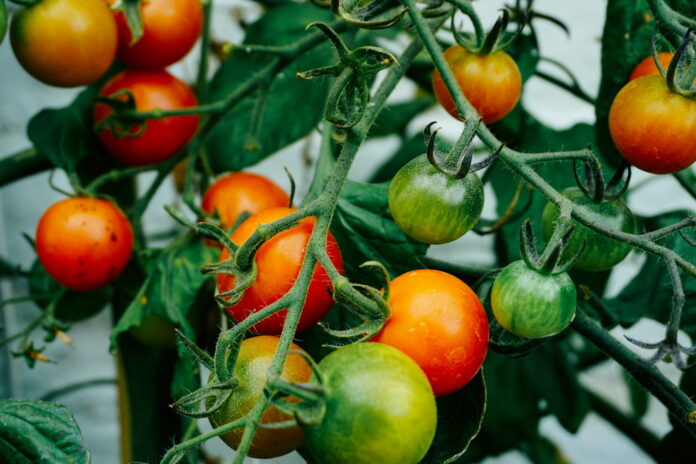In recent years, the plant-based diet has garnered significant attention, not just for its health benefits, but also for its potential to positively impact the environment. This shift in dietary habits is particularly relevant when considering the health of aquatic ecosystems.
The effects of human food choices extend far beyond our plates, influencing water conservation efforts, the well-being of marine life, and the overall balance of ecosystems. In this comprehensive article, we will explore how adopting a plant-based diet can contribute to the preservation and restoration of aquatic environments, shedding light on the interconnectedness of our dietary choices and the world’s water resources.
Plant-Based Diet Overview
A plant-based diet primarily consists of foods derived from plants, including vegetables, grains, nuts, seeds, legumes, and fruits, with few or no animal products. This way of eating is gaining popularity due to its association with improved health outcomes and a lower environmental footprint. The diet’s low reliance on animal agriculture is key to its sustainability, as it requires less land, water, and energy compared to diets high in animal products.
The production of plant-based foods generally involves lower water usage than that of animal-based products. For example, it takes significantly less water to grow a pound of lentils than it does to produce the same amount of beef. This is a crucial consideration given the growing concern over water scarcity and the need for more efficient water use in agriculture. Additionally, plant-based diets can lead to a reduction in pollution from runoff and waste that is typical of large-scale animal farming.
The adoption of a plant-based diet can contribute to reduced greenhouse gas emissions. Animal agriculture is a notable source of methane and nitrous oxide, both potent greenhouse gases. By decreasing the demand for animal products, a plant-based diet helps to mitigate the impact of these emissions, contributing to broader efforts in combating climate change and its effects on water systems and marine environments.
Water Resource Conservation
The connection between dietary choices and water resource conservation is profound. Animal agriculture is one of the most water-intensive industries, consuming vast amounts of freshwater for drinking, cleaning, and crop irrigation for feed production. Switching to a plant-based diet can significantly reduce this water footprint, conserving precious freshwater resources in an era where water scarcity is becoming an increasingly pressing issue.
Water pollution is another critical issue linked to conventional animal farming practices. Fertilizers and manure used in these operations can lead to nutrient runoff, which contaminates rivers, lakes, and oceans, contributing to harmful algal blooms and dead zones. By contrast, a plant-based diet demands less intensive fertilizer use, reducing the incidence of such runoff and the associated damage to aquatic ecosystems.
Efficient water use in plant-based food production can help in preserving natural habitats. Unsustainable water extraction for agriculture can lead to the depletion of rivers and lakes, which are home to diverse aquatic species. By reducing the water demand through plant-based diets, these ecosystems can be protected, ensuring that aquatic species have a sustainable environment in which to thrive.
Effects on Marine Life
The impact of dietary choices on marine life is significant. Overfishing to meet the demand for seafood has led to the depletion of fish populations and disrupted marine food webs. This has resulted in negative consequences for marine biodiversity and the overall health of ocean ecosystems. A shift toward a plant-based diet alleviates pressure on fish stocks, allowing for the recovery of endangered species and the restoration of marine balance.
Furthermore, the bycatch of non-target species during fishing operations is a major issue, with millions of marine animals caught and discarded annually. Plant-based diets eliminate the direct demand for fish and, therefore, can contribute to the reduction of bycatch and the suffering it causes to countless marine creatures. This change in consumer behavior can drive the fishing industry toward more sustainable practices.
Aquaculture, or fish farming, which is often touted as a solution to overfishing, has its own set of environmental challenges, including water pollution and the spread of diseases to wild fish populations. By choosing a plant-based diet, the reliance on aquaculture decreases, thereby reducing the impact of these operations on aquatic ecosystems and promoting a healthier marine environment.
Dietary Choices & Ecosystems
Every individual’s dietary choices collectively have a profound impact on global ecosystems. The move towards plant-based diets is not just a personal health decision but also an ecological one. By opting for foods with a lower environmental burden, consumers can play an active role in fostering sustainable ecosystems both on land and in water.
Sustainable agriculture practices for plant-based foods, such as organic farming and permaculture, further enhance the positive impacts on aquatic ecosystems. These practices focus on maintaining soil health, preventing water pollution, and preserving biodiversity, which benefits both terrestrial and aquatic ecosystems. By supporting such farming methods through dietary choices, individuals contribute to the health and resilience of aquatic ecosystems.
Lastly, the ripple effects of a plant-based diet extend to climate change mitigation. Climate change is a significant threat to aquatic ecosystems, causing ocean acidification, rising sea levels, and increased water temperatures. By reducing greenhouse gas emissions through plant-based diets, individuals can help in combating these changes, ultimately protecting aquatic life and preserving the integrity of these vital ecosystems.
The implications of a plant-based diet on aquatic ecosystems are far-reaching and undeniably positive. By conserving water resources, mitigating pollution, and reducing the pressures on marine life, this dietary shift can have a substantial impact on the health and sustainability of aquatic environments. As the global population becomes increasingly aware of the environmental consequences of their food choices, the adoption of plant-based diets emerges as a powerful tool for fostering the well-being of our planet’s water resources and marine life. The collective decision to prioritize plant-based foods is not only an act of environmental stewardship but also a step towards a more sustainable future for all inhabitants of Earth.
